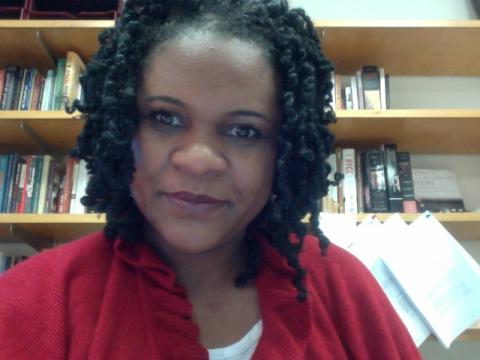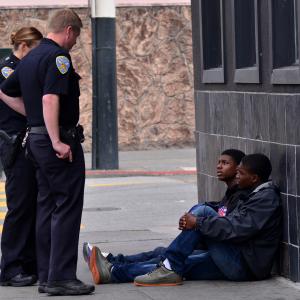
Rev. Dr. Yolanda Pierce is the Director of the Center for Black Church Studies and Associate Professor of Religion and Literature at Princeton Theological Seminary. She teaches courses in African American Religious History, Womanist Theology, and Religion and Literature.
Posts By This Author
African Cosmologies: Spiritual Reflections on ‘Black Panther’
A pivotal early scene in the movie engages African cosmology and varieties of African spirituality on many levels. The viewer encounters a vibrant spiritual world from the earliest moments of the film, which draws from the cultural traditions of many real African nations by incorporating customs, clothing, languages, art, architecture, body modification styles, and combat techniques found across the continent.
I Will Bear Witness Though Heavy Laden

Image via ChameleonsEye / Shutterstock.com
I didn’t know whether to stop. I turned the corner and noticed you first, before I noticed the police cars and the flashing lights and your car crammed full of stuff. You were standing there, jeans and hoodie. Hands in pocket and hood over your head. It was cold and you did not have on a coat. I was in my warm car, and you were standing in the January cold.
A Theology for a Grieving People

Image via Petronilo G. Dangoy Jr./Shutterstock
Even as the disciples of Jesus grieved at the foot of the cross, they understood there was work to be done. The work of justice is deeply political and requires an engagement in this present world. With tears in our eyes, we are called to march, rally, petition, sing, dance, create art, and use whatever gifts and talents we possess for the work of justice. The work of justice is deeply theological. Our church communities must foster a faith that gives people room to grow, to stretch, and to ask the tough questions. A grieving people need a theology for such a time as this, a theology that speaks to this present age. White churches, in particular, must end their silence and address the pain of grieving black lives, because the work of justice is collective. Even if you cannot possible understand all the reasons for our pain, you can come alongside a grieving people in love, humility, and solidarity.
